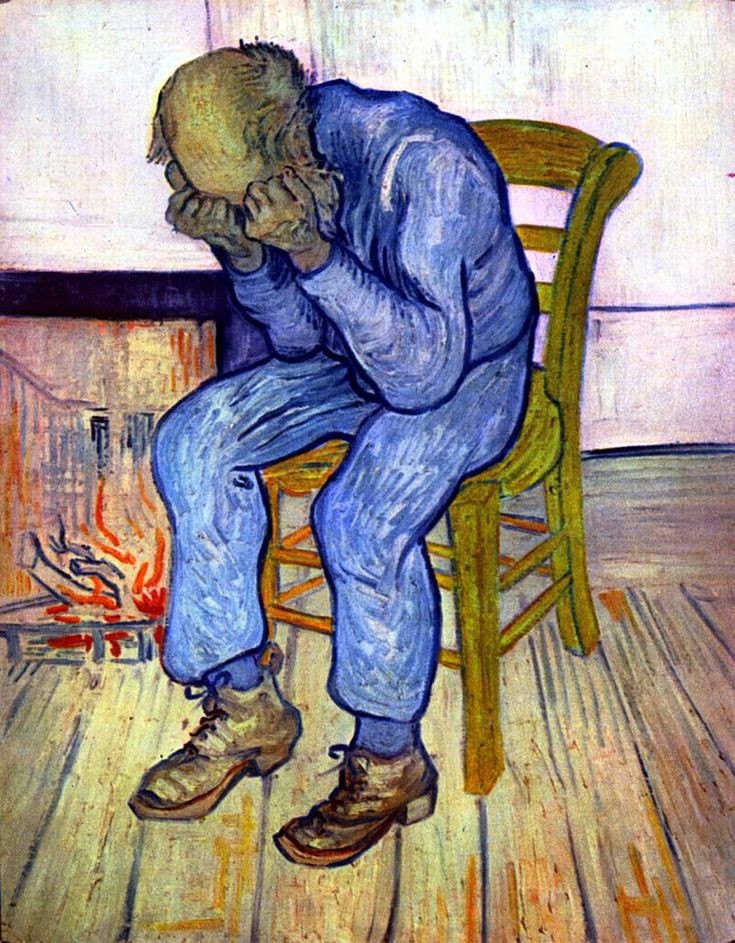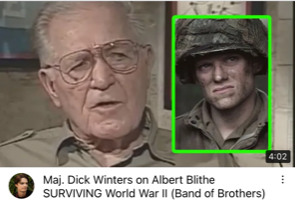|
Word Gems
exploring self-realization, sacred personhood, and full humanity
Fear
“We can easily forgive a child who is afraid of the dark; the real tragedy of life is when men are afraid of the light.” Plato
Editor's 1-Minute Essay: Fear

Dr. August Goforth, “I let God be God in me,” June 08, 2025: “I no longer try to change outer things. They are simply a reflection. I change my inner perception, and the outer reveals the beauty so long obscured by my own attitude. I concentrate on my vision and find my outer view transformed. I find myself attuned to the grandeur of life and in unison with the perfect order of the universe.”
Father Robert Benson: "Now transitions have been taking place since the world began thousands of centuries ago, but mankind in general is content to remain in ignorance of what is to happen to him when he leaves the earth for the spirit world. He either asserts that it is impossible to know, or else he prefers to abide in his ignorance. And yet if he had but the knowledge of even the simple facts such as I have detailed to you, what a wealth of difference it would make to his mind. It would drive out that dreadful fear of the unknown ’hereafter’ which can be, and is, such a crushing nightmare to sensitive minds."
August Goforth: “When I mentally, emotionally move away from Source, I will feel some kind of less-than-good sensation. I cannot actually move away from Source in reality — because Reality Is All There Is — but I can think as if I can… [the] ego-mind’s declaration that Source has abandoned me and therefore I am ‘all alone’ or ‘lost’. I have somehow temporarily forgotten that no matter where I think or feel I am, Source always is here.”
Eric Hoffer: "Fear comes from uncertainty. When we are absolutely certain, whether of our worth or worthlessness, we are almost impervious to fear. Thus a feeling of utter unworthiness can be a source of courage."
|
to face unafraid, the plans that we made...

|
Winter Wonderland
"...to face unafraid, the plans that we made"
|

Elenchus. Annie Lennox of the Eurythmics does such a good job with her version of “Winter Wonderland.”
Kairissi. There’s something really magical about that song.
E. It’s more than a Christmas carol, more than an ode to the beauties of nature. I’ve listened to “Winter Wonderland” so many times, but I’m still emotionally jarred every time I hear the words, “to face unafraid the plans that we made.”
K. It was never meant to be a Christmas song – there’s no reference to the holidays in it. The songwriter had other things on his mind. There’s a sad story behind “Winter Wonderland.” I was reading about it.
E. What happened?
READ MORE
|
Eleanor Roosevelt: “You gain strength, courage, and confidence by each experience in which you really stop to look fear in the face. You are able to say to yourself, ‘I have lived through this horror. I can take the next thing that comes along.’ You must do the thing you think you cannot do.”
Dale Carnegie: “You can conquer almost any fear if you will only make up your mind to do so. For remember, fear doesn't exist anywhere except in the mind.”
Franklin D. Roosevelt: “The only thing we have to fear is fear itself.”
Napoleon Bonaparte: “He who fears being conquered is sure of defeat.”
Ralph Waldo Emerson: “Fear defeats more people than any other one thing in the world.”
Plato: “We can easily forgive a child who is afraid of the dark; the real tragedy of life is when men are afraid of the light.”
Dale Carnegie: “Inaction breeds doubt and fear. Action breeds confidence and courage. If you want to conquer fear, do not sit home and think about it. Go out and get busy.”
Seneca: “We are more often frightened than hurt; and we suffer more from imagination than from reality.”
H.P. Lovecraft: "The oldest and strongest emotion of mankind is fear."
Coleridge: "In politics, what begins in fear usually ends in folly."
Frank Herbert: "I must not fear. Fear is the mind-killer. Fear is the little-death that brings total obliteration. I will face my fear. I will permit it to pass over me and through me. And when it has gone past I will turn the inner eye to see its path. Where the fear has gone there will be nothing. Only I will remain."
Publilius Syrus: "What we fear comes to pass more speedily than what we hope."
Edgar Watson Howe: "A good scare is worth more to a man than good advice."
Lt. John B. Putnam Jr.: “Courage is not the lack of fear but the ability to face it."
Anais Nin: “People living deeply have no fear of death.”
Ralph Waldo Emerson: “When a resolute young fellow steps up to the great bully, the world, and takes him boldly by the beard, he is often surprised to find it comes off in his hand, and that it was only tied on to scare away the timid adventurers.”

Vincent van Gogh, "Old Man in Sorrow" (On the Threshold of Eternity), 1890
Bertrand Russell: “Fear is the main source of superstition, and one of the main sources of cruelty. To conquer fear is the beginning of wisdom.”
Karl Augustus Menninger: “Fears are educated into us, and can, if we wish, be educated out.”
Isa Upanishad: “Who sees all beings in his own self, and his own self in all beings, loses all fear.”
Helen Keller: “Avoiding danger is no safer in the long run than outright exposure. The fearful are caught as often as the bold.”
|
a valuable and practical lesson on ‘surrender and acceptance’
Given the uncivil, and dangerous, state of the world, with the diminishment of personal freedoms, and the rise of totalitarianism in our midst, plus the economic crisis, I have noticed, in myself and in others, a growing tendency to want to escape the stress of it all.
I’d been thinking about this, what I could do in my own life to remain sane and productive, when I happened to view a segment from the movie, “Band Of Brothers.” On youtube you can find a short clip entitled “Speirs’ Hopeless War speech.”
It features an incident between Pvt. Blithe and Lt. Speirs. Blithe had suffered psychological trauma in battle, such that, he found himself, at times, frozen in terror, unable to move, and even blind.
Speirs offered some advice that helped him:
“We're all afraid, Blithe. But you hid in that ditch because you think there’s still hope – but the only hope you have is to accept the fact that you’re already dead. And the sooner you accept that, the sooner you’ll be able to function the way a soldier is supposed to function.” In other words, "If you spend your time terrorized by death, then you’re already defeated, and you have no hope of getting through this.”
I thought about Speirs’ words. They're very jarring. It’s not what we want to hear. But, then I realized, he’s actually right.
Our situation, at least for the moment, is not one of enduring the horrors of living in a war-zone, the kind Bob Feland spoke of. Given the lawlessness of the world, this could change, but, even so, the counsel “you need to accept that you’re already dead” is not all wrong.
In many of the WG writings, I have argued that “this world cannot be fixed, only forsaken; cannot be saved, only transcended.” In view of this precariousness, and if Lt. Speirs were addressing us, he might say:
“Yes, we’re all afraid or feel ill at ease living in this world. There’s so much violence and injustice, so much corruption, unfairness, and people taking advantage of others; and, of course, this gets us down. But, the real reason we get angry or depressed is because we think there’s still hope. We become frantic or despairing because we still believe that we might find our perfect life here, our perfect career opportunity, our perfect mate and perfect marriage – our perfect health and happiness – in this world. But, for virtually everyone, this isn’t going to happen. We didn’t come to this world to receive these things. There’s a larger purpose in play, more important lessons to learn while on planet Earth, and our personal comfort is not always part of that plan. And so, the sooner we realize and accept the fact that “we’re already dead” – dead to our most cherished hopes and dreams – the sooner we’ll be able to function as an enlightened person is meant to do while living on the Earth. Summerland is our home-world, and that’s where we’re assured to find our total happiness – not here.”
soldiers, the armor of God
A metaphor from the Bible, one most apt, can help us. In this godless and hostile world, those who would live to promote righteousness and truth are like soldiers, far from home; further, each day, we are to put on the “armor of God” to protect our minds from anger and despair. I recall just now from one of the afterlife testimonies, a Spirit Guide commenting that our trip to the dysfunctional Earth is like living in a war-zone. Whatever else the “soldier” metaphor might mean, it surely means that we must adopt Lt. Speirs’ advice.
Footnote: Major Dick Winters commented on Pvt. Blithe. He said the movie was very unfair to him and also quite inaccurate. Yes, Blithe did experience a melt-down for a time, but he recovered himself. And he did not die, said Winters, of a later wound to the throat, which the final credits of the movie asserted.

Moreover, Blithe not only survived WWII, but volunteered for, and also survived, the Korean War! where he distinguished himself with uncommon bravery! earning not just a Purple Heart, but a Bronze Star and even a Silver Star for valor under fire! Not bad for a young man who once fell into frozen terror - we get as many chances as we need, as a friend once encouraged me, to right ourselves. Obviously, soldier Blithe had gained from Speirs’ counsel. And we can survive our own ordeal with today’s Dear Leaders, as well; but, if we don’t survive, that’s acceptable, too, as our “home world” is just one missed heartbeat away. Fear leaves us, can no longer torture us, when we acknowledge “There’s nothing you can take from me as I’m already free in my spirit and have 'enough' within myself.”
|
Eric Hoffer: “You can discover what your enemy fears most by observing the means he uses to frighten you.”
Marcus Aurelius: “If you are distressed by anything external, the pain is not due to the thing itself, but to your estimate of it; and this you have the power to revoke at any moment.”
Virgil Thomson: “Try a thing you haven’t done three times. Once, to get over the fear of doing it. Twice, to learn how to do it. And a third time to figure out whether you like it or not.”
Gandhi: “The enemy is fear. We think it is hate; but, it is fear.”
|



